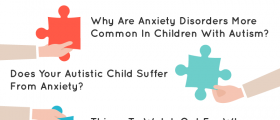
Sociopaths are people among us who lack the sense of conscience as well as emotions towards others. Rather, they go through life thinking solely about themselves, hurting others for their benefit, lying, cheating and manipulating in order to achieve their own, selfish goals. All in all, being a sociopath means being involved in numerous immoral actions, which is not a desired scenario you would like for your child. However, even though you might believe that sociopathy affects only adults, your child may show symptoms of this behavioral disorder in an early age. By observing this kind of behavioral pattern, you may react timely and provide your child adequate treatment.
Reasons behind Sociopathic Tendencies in Young Ones
The scientifically proven causes of sociopathic disorder are still quite blurry and we are yet to find out the main reasons behind this problem. Nevertheless, so far, we have come up with several causes which may be considered to be the most prominent ones.
Genetics is the first factor, meaning that a child with sociopathic tendencies is likely to come from a family which experienced this disorder before. Being brought up by one or both parents who are sociopaths gives you great chances of becoming one yourself, even if you are adopted.
Environment and Emotional Trauma
This leads us to the second cause, which is the environment. Children tend to mimic the behavior of the grown ups around them, especially their parents. Thus, behavioral problems of this type seen in a parent may easily reflect in the child's behavior too. Most sociopathic children have been deprived of love and affection in the earliest days of their lives.
Finally, enduring an emotional trauma may lead to a sociopath being born. Exposure to death, accidents and some other stressful events of this type may cause a person to change, becoming deprived of emotions.
Signs of Sociopathy in Children
Spotting this behavioral disorder in a child is not that hard. Namely, young sociopaths show no emotions or empathy towards the people and animals they are hurting and are prone to cheating, aggressiveness, lying, stealing and performing other actions of this type frequently.
Also, they may be impulsive, irresponsible, lacking self-control and capability to maintain their relationships with other people. They may have speech problems or issues with demanding things from you in an inappropriate manner. Additionally, they may be bossy, argumentative and manipulative, showing learning problems both at school and at home.
Treatment Options
Once you notice this type of behavior in your child, you are advised to have a lot of patience and tolerance, creating a bond of trust. This may be extremely hard at some times, but you need to give your best. If you experience problems in the process, seek psychiatric help and advice. Counseling is known to help greatly.

















Your thoughts on this
Loading...